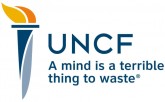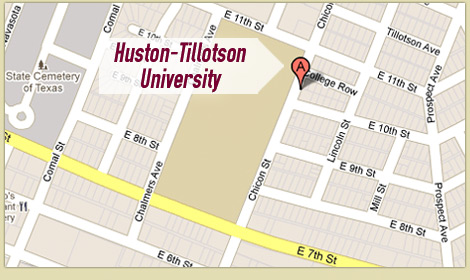
Types of Financial Aid
Types of Financial Aid
Getting Started
Undergraduate financial aid can come from a variety of federal, state, university, and private sources and may include gift aid or student employment—funds that do not have to be repaid—or student or parent loans, funds that can be borrowed to cover educational expenses and need to be repaid after graduation.
Need-based financial aid can help cover the difference between the school’s cost of attendance and what students and families can afford to pay out of pocket. The amount that a student is eligible to receive is based on detailed financial information provided by students and families in federal, state or agency applications.
Non–need-based aid, on the other hand, is based solely on the school’s cost of attendance—estimated expenses for one year of study. It’s often awarded according to academic or athletic ability, community service, or leadership.
Gift Aid
Sources: Federal and state governments, the university, the academic department or professional school, community and civic groups, and private industry.
SCHOLARSHIPS
HT administers more than a dozen prestigious scholarship programs, ranging in value from a few thousand dollars up to full tuition. They are awarded based on academic excellence, leadership, service, and talent. Visit the Admission website for more information.
Scholarships do not increase the total amount of your need-based financial aid. Instead, they change the composition of your financial aid eligibility. In most cases, we allow outside scholarships to replace the amounts of student loans or Federal Work-Study in your financial aid package. We make every attempt to preserve any university need-based grant you may have been awarded. Each situation must be reviewed in light of the availability of funds, state and federal regulations, and the university’s financial aid policies.
Scholarships offer students a great way to maximize your financial aid. Scholarships do not have to be repaid. A good rule of thumb for students is “apply early and apply often.” For those that are “first in family” search for scholarship opportunities created specifically for “first in family” students.
Huston Tillotson University Award Spring Scholarship Portal
African-American Male Teacher Initiative
St. David’s Foundation Scholarship (pre-med majors)
Huston Tillotson University is proudly supported by the United Negro College Fund offering over $250,000 in scholarships to our students.
We encourage students students to apply for the general scholarship and to check often for other opportunities they may be eligible for.
Scholarship Check Mailing Address
Huston-Tillotson University
Attention: Office of Financial Aid
900 Chicon St Austin, Texas 78702
*Please include student name and ID number
STUDENT LOANS
If you apply for financial aid, your award package may contain federal loans to help you meet the cost of attendance. A loan contains a promise to repay with interest (i.e. a promissory note). Be sure that you understand the terms and conditions associated with the loan. Federal loans offer lower interest rates and the most flexibility for students including in-school deferments as well as several repayment plans that meet a wide range of financial situations.
For more information visit and to apply visit: www.studentaid.gov
Below are the steps to follow when applying for a federal loan:
- Complete Entrance Counseling
- Complete Direct Subsidized / Unsubsidized Loan Master Promissory Note (MPN)
- Complete Exit Counseling (upon graduation, less than half-time, or withdrawal)
Federal Direct Loans
Federal Direct Loans are available to most eligible borrowers who apply for financial aid.
Direct Parent PLUS Loans
Families looking for long-term financing may wish to consider the Federal Direct Parent PLUS Loan to finance their child’s education.
Direct Graduate PLUS Loan
Graduate and professional students looking for long-term financing may wish to consider the Federal Direct Graduate PLUS Loan to finance their education.
Federal Stafford Loans – Loan Limits
Federal regulations place limits on the amount that students can borrow under the Federal Stafford Loan program. These limits are subject to the following:
- Annual Maximum Loan Limit: Determines the maximum amount that may be borrowed through the Stafford Loan program during the academic year (fall, spring, and/or summer).
- The combined total (Federal Stafford Subsidized and/or Unsubsidized Loans) cannot exceed your Cost of Attendance (COA) minus other financial aid or the maximum academic year amount allowable by law, whichever is less.
- Aggregate Maximum Loan Limit: Determines the maximum amount that may be borrowed through the Stafford Loan program over a student’s college career.
Please note: First-time undergraduate borrowers on or after July 1, 2023, have a limit on the period of time they may receive Subsidized Stafford loans. The time period is measured in academic years.
The maximum annual amount you can borrow in the form of a Federal Subsidized and/or Unsubsidized Loan(s) is determined by your class level and dependency status.
Annual Maximum Loan Limits
| Dependent Student | Independent Student | |
| Freshman: 0 – 29 credit hours |
$5,500 (no more than $3,500 subsidized) |
$9,500 (no more than $3,500 subsidized) |
| Sophomore: 30 – 59 credit hours |
$6,500 (no more than $4,500 subsidized) |
$10,500 (no more than $4,500 subsidized) |
| Junior/Senior: 60+ credit hours |
$7,500 (no more than $5,500 subsidized) |
$12,500 (no more than $5,500 subsidized) |
| Graduate level | N/A | $20,500 (all unsubsidized) |
Aggregate Maximum Loan Limits
| Amount | |
| Dependent | $31,000 (No more than $23,000 subsidized) |
| Independent | $57,500 (No more than $23,000 subsidized) |
| Graduate | $138,000 (No more than $65,500 subsidized) |
Right to Cancel
You have the right to cancel any of these loans.
Federal regulations require colleges and universities to notify student loan borrowers of their right to cancel all or a portion of their loan or loan disbursement. No action is required on your part unless you wish to reduce or cancel your loan(s). Requests must be made in writing and should be sent via email directly to the Office of Financial Aid at finaid@htu.edu. You must include the borrower’s full name, student ID number, the name of the loan, and the amount to be reduced or canceled. If the cancellation results in a balance due on your student account, payment will be required immediately. Students are encouraged to borrow responsibly. Click here for more information on Default prevention.
If a disbursement has already posted/credited to your account, then you may only request to cancel that disbursement if a refund has not been generated. Please note that you can request to cancel future disbursements. If a refund has not been processed, you must request to cancel the disbursements within 14 days of notification that the funds have been disbursed to your account. For federal student loans, the Department of Education will notify you when funds are disbursed.
Alternative Payment Options
CAL loan College Access Loan (CAL) Program
Work Study
Work-Study provides part-time jobs for students with financial need, allowing them to earn money to help pay for educational expenses. The program encourages community service work and work related to students’ course of study. Work-Study is available to full-time and part-time students.
If you would like to be considered for Work-Study, mark “yes” to the question on the FAFSA that asks whether you are interested in student employment. Work-Study awards are based on available funds.
Once you have been awarded Work-Study as part of your financial aid package, it is up to you to find an approved job.





